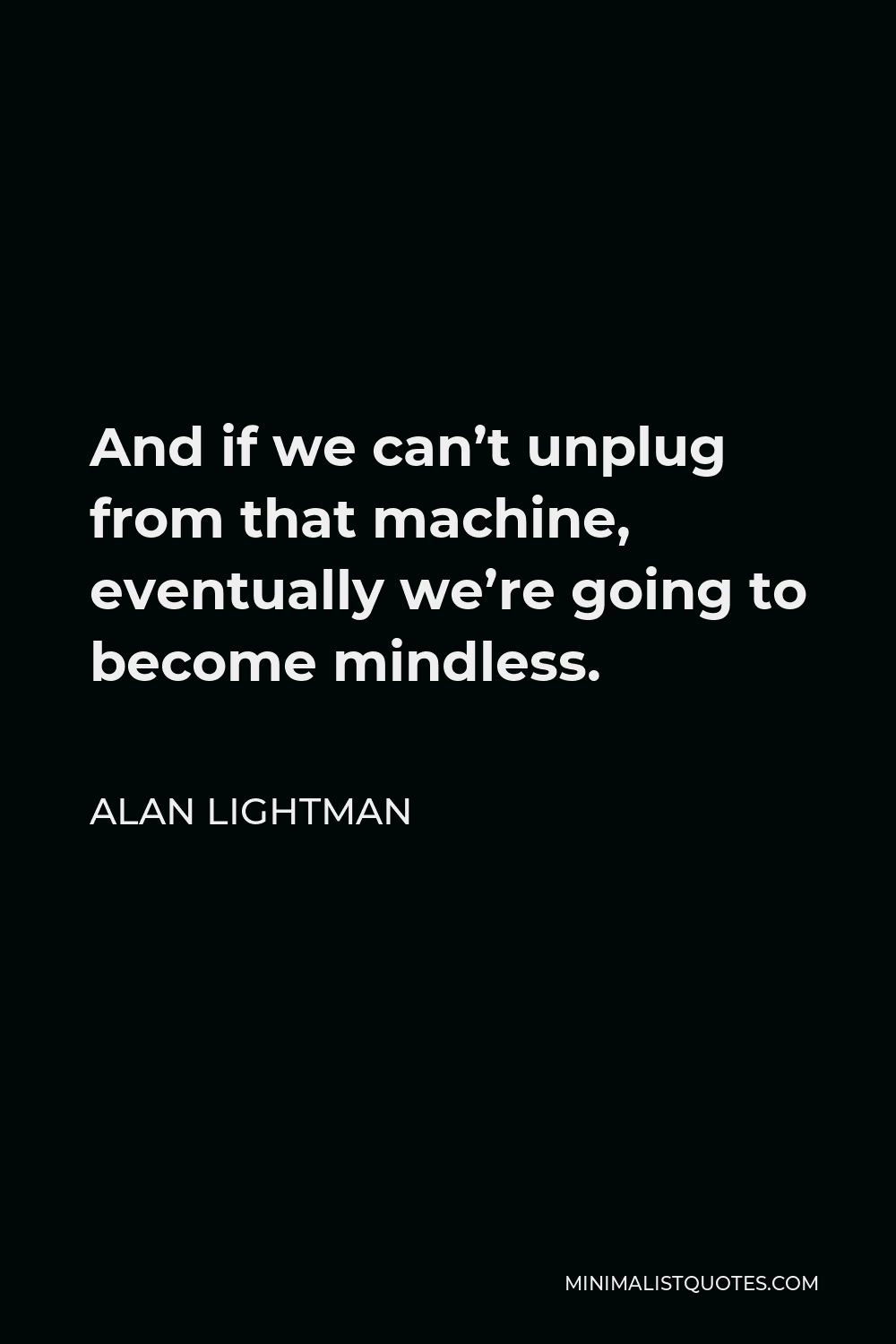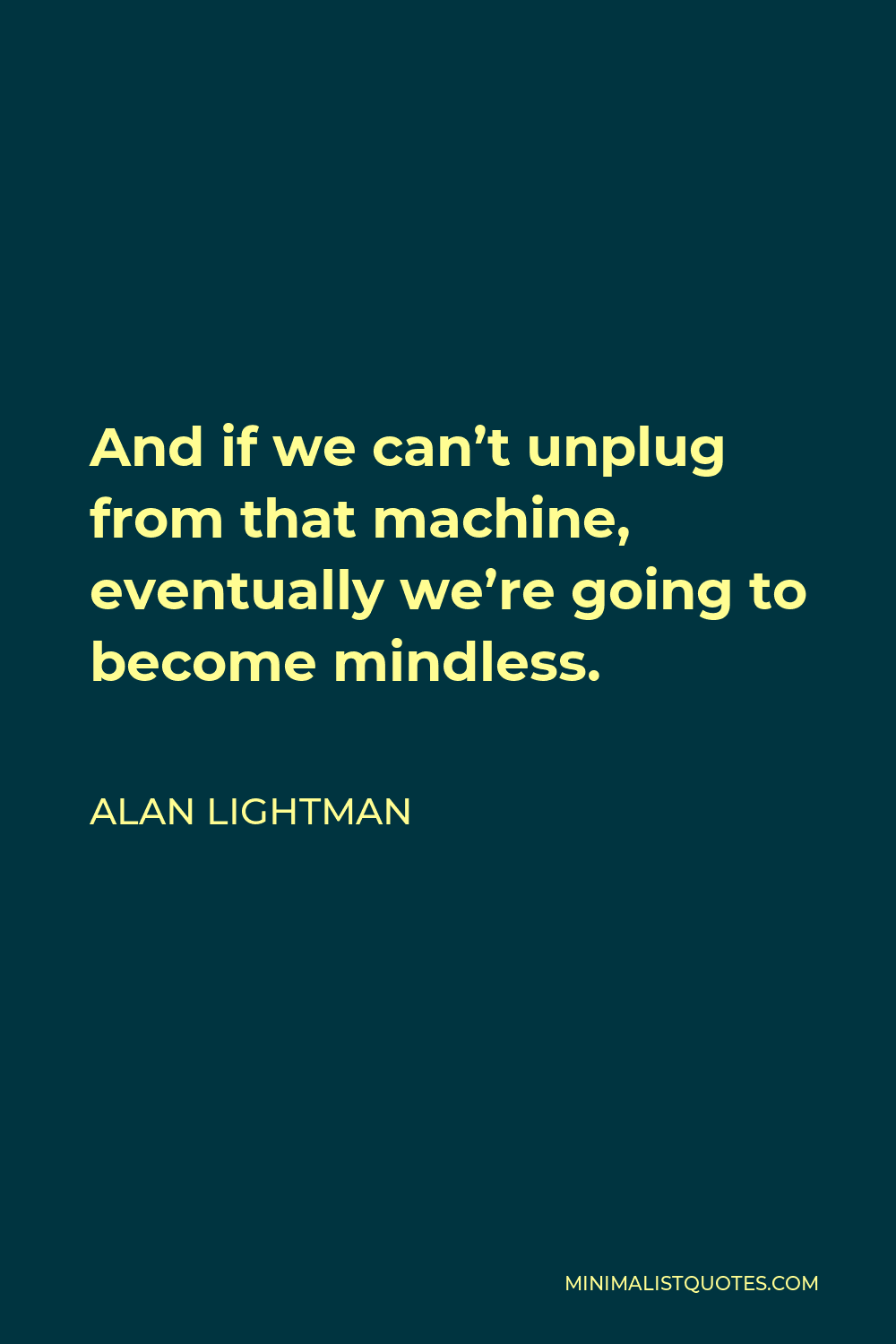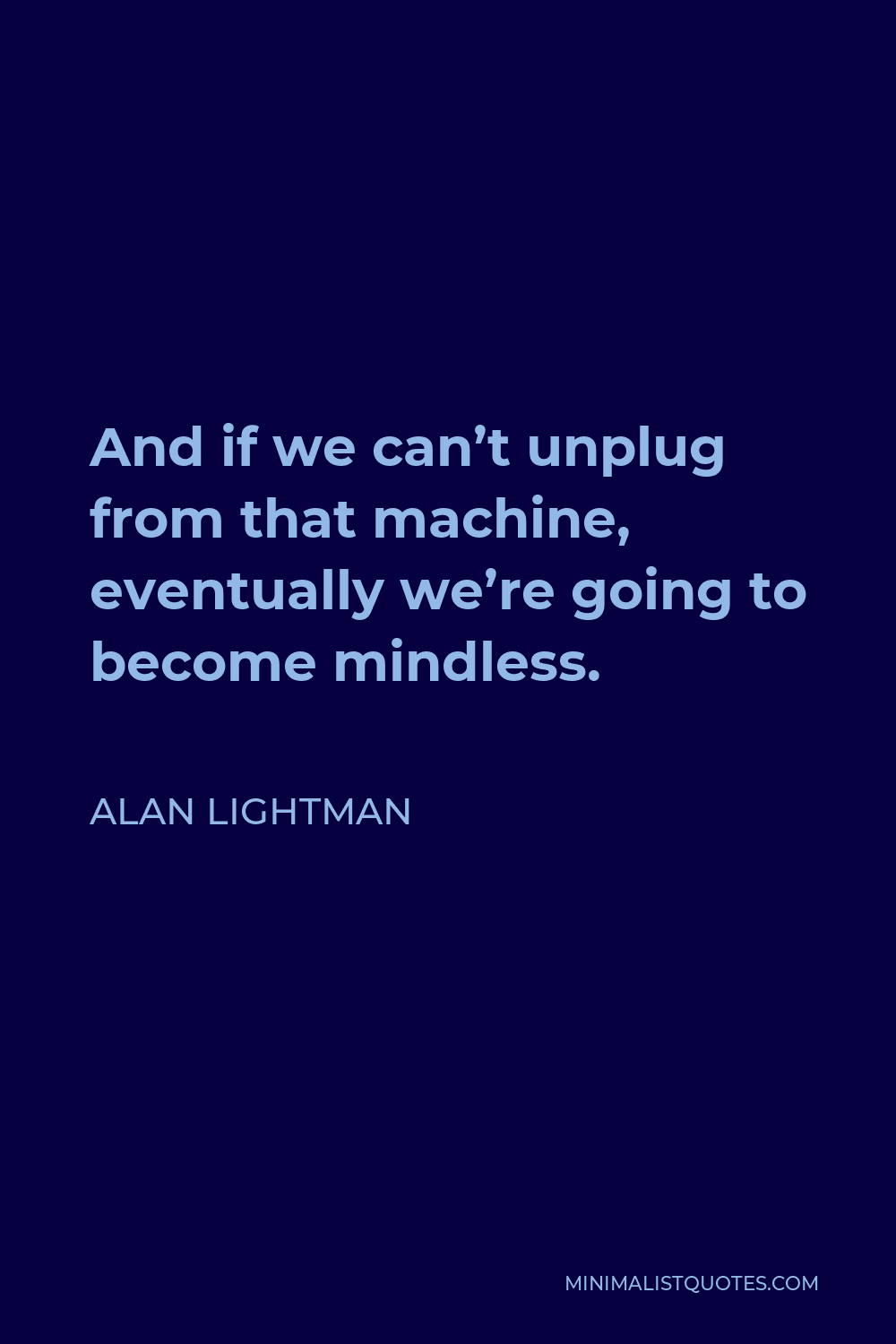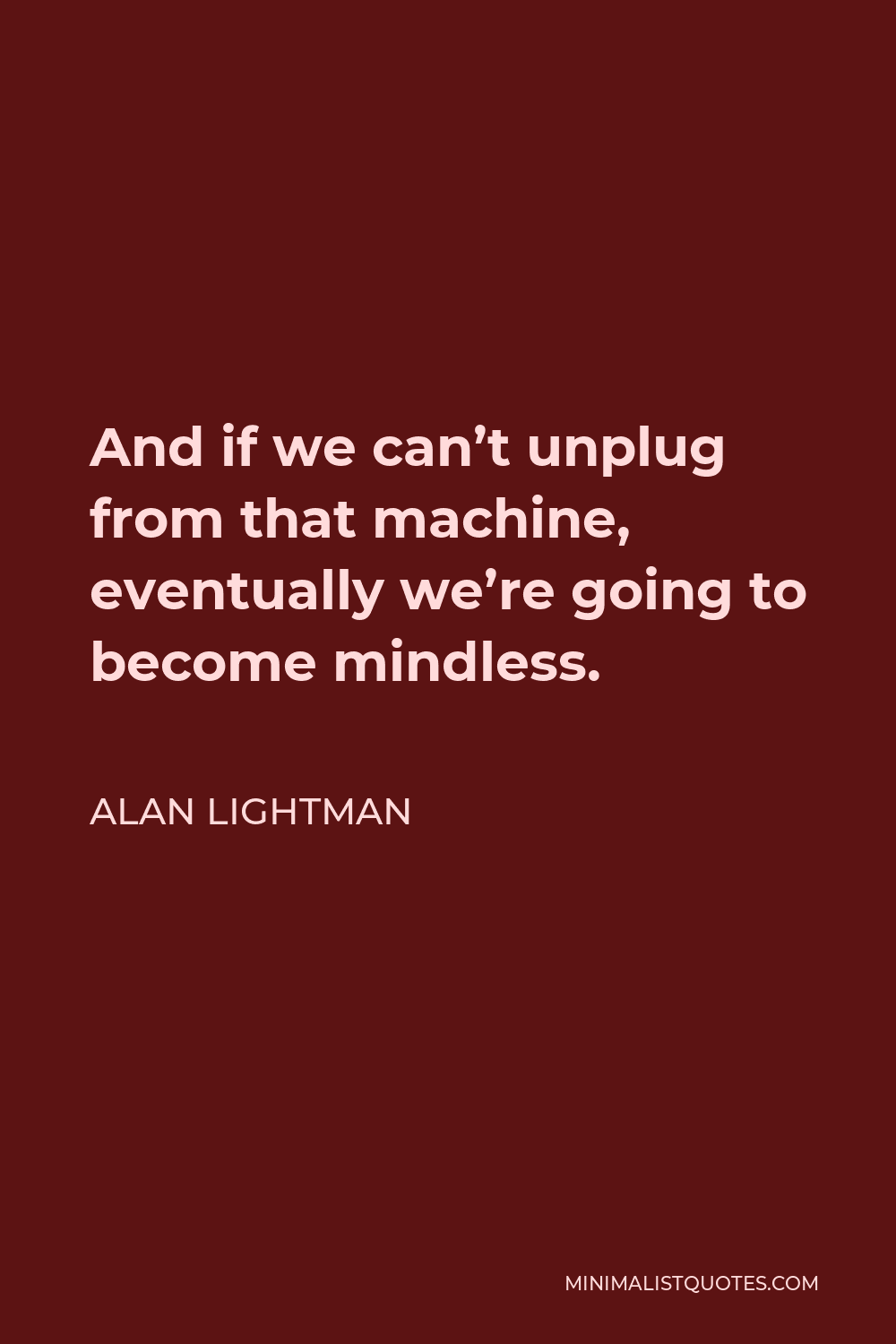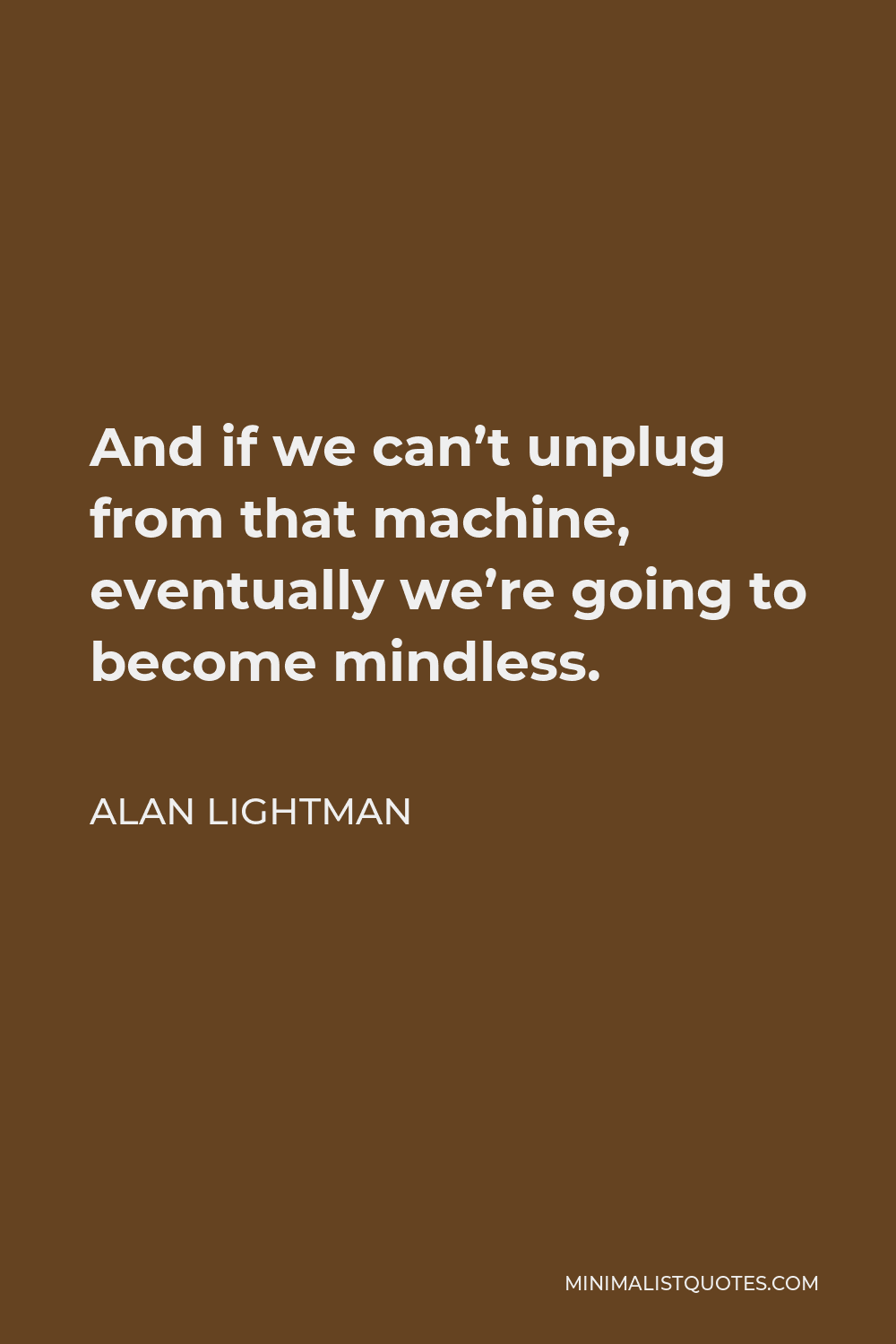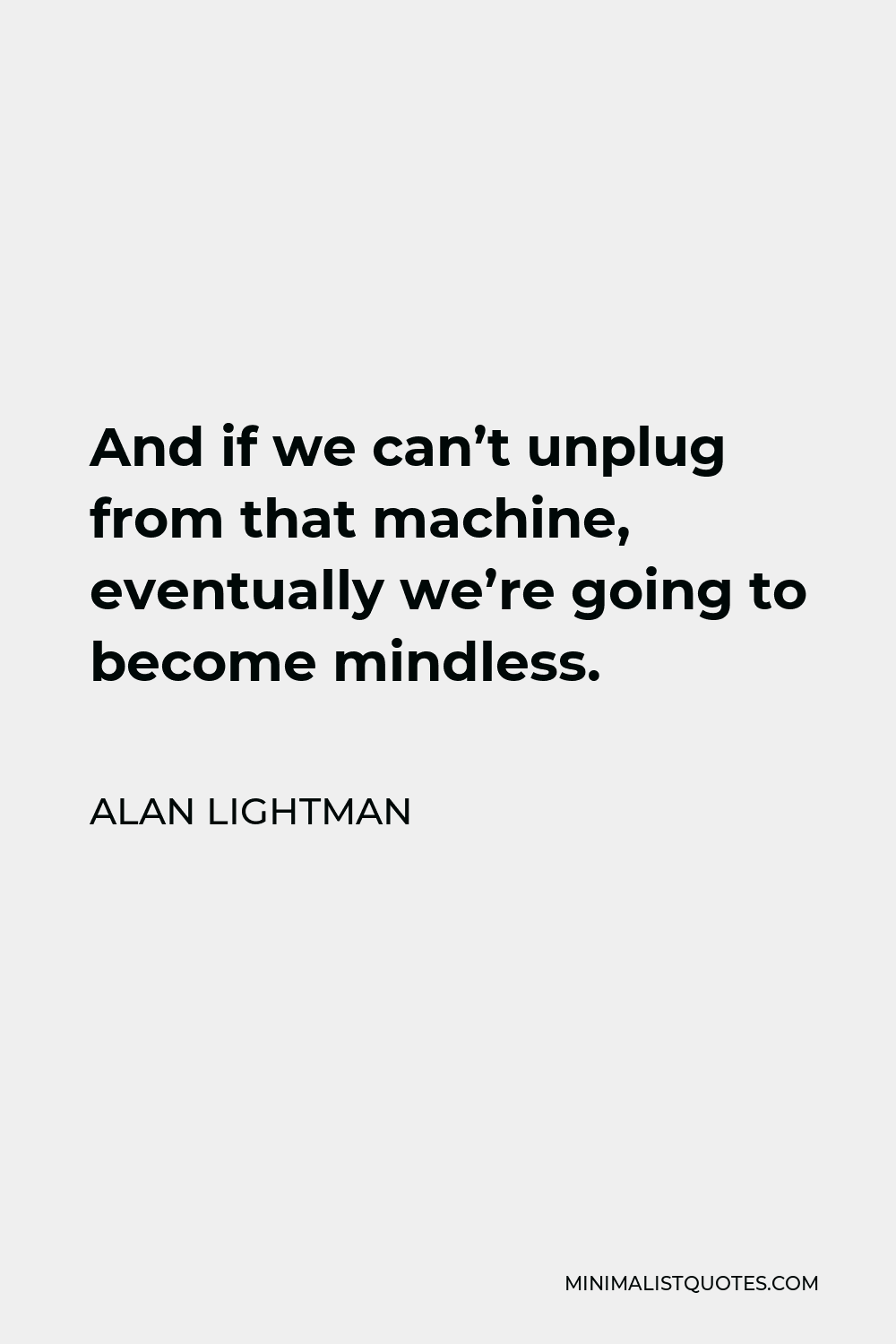People are content to live in contradictory worlds, so long as they know the reason for each.
ALAN LIGHTMANAnd if we can’t unplug from that machine, eventually we’re going to become mindless.
More Alan Lightman Quotes
-





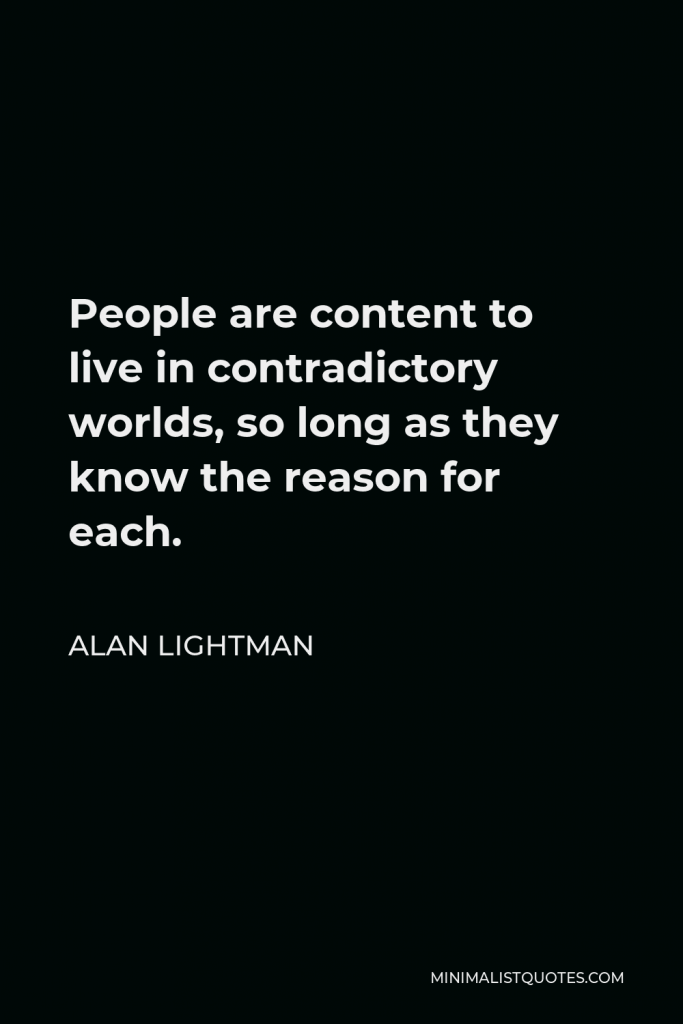

-





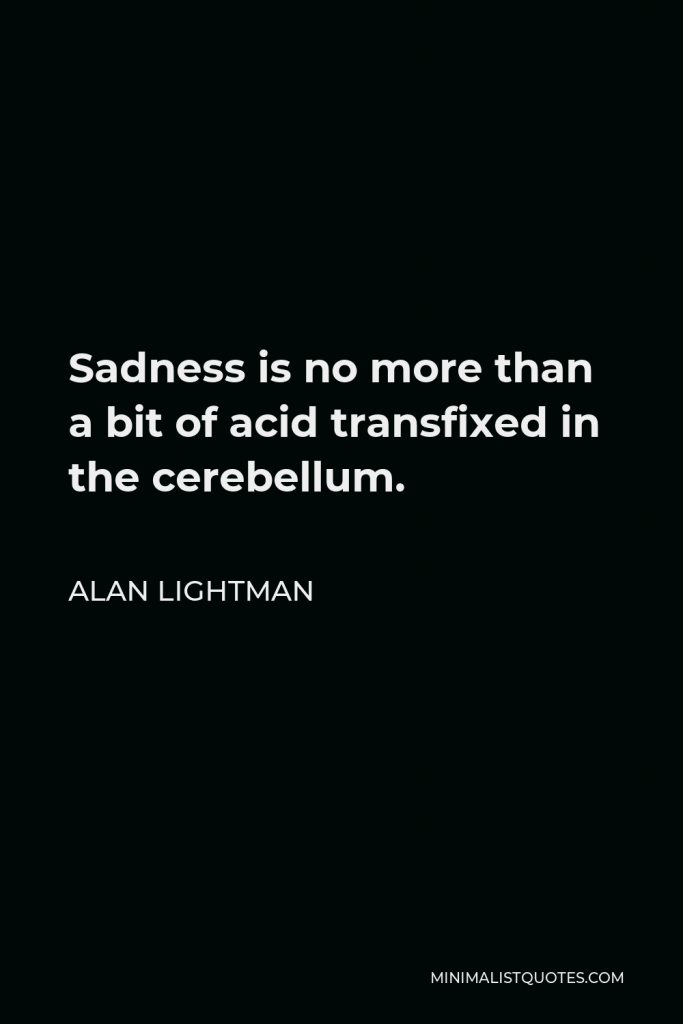

Sadness is no more than a bit of acid transfixed in the cerebellum.
ALAN LIGHTMAN -





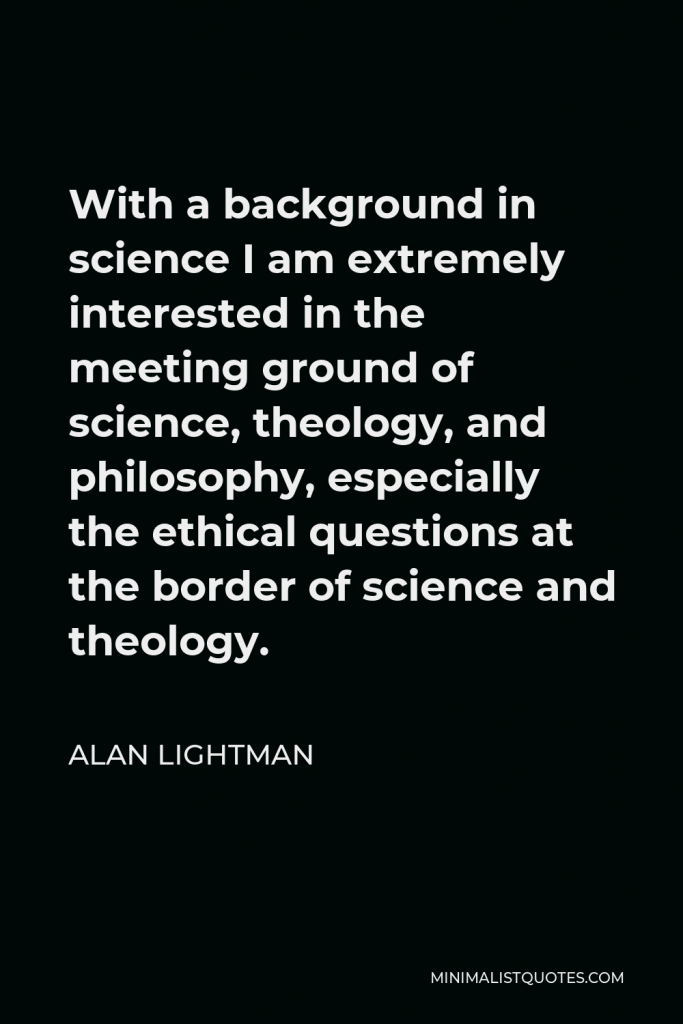

With a background in science I am extremely interested in the meeting ground of science, theology, and philosophy, especially the ethical questions at the border of science and theology.
ALAN LIGHTMAN -





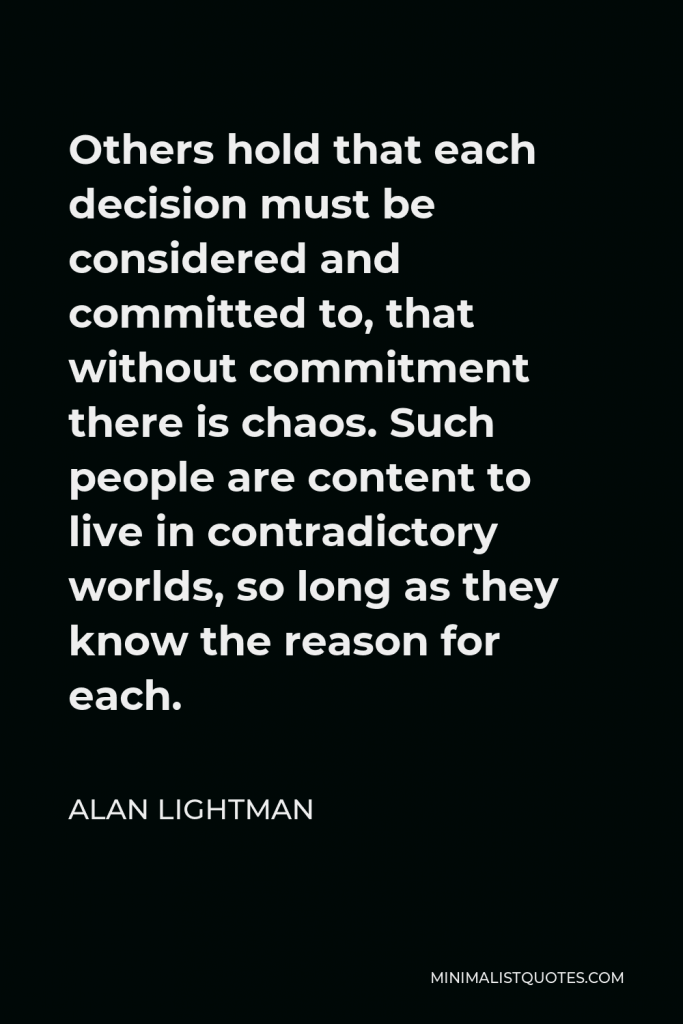

Others hold that each decision must be considered and committed to, that without commitment there is chaos. Such people are content to live in contradictory worlds, so long as they know the reason for each.
ALAN LIGHTMAN -





![Alan Lightman Quote - Such is the cost of immortality. No person is whole. No person is free. Over time, some have determined that the only way to live is to die. In death, a man or a woman is free of the weight of the past [and the future].](https://minimalistquotes.com/wp-content/uploads/2022/08/such-is-the-cost-of-immortality-no-person-is-whole-683x1024.jpg)

Such is the cost of immortality. No person is whole. No person is free. Over time, some have determined that the only way to live is to die. In death, a man or a woman is free of the weight of the past [and the future].
ALAN LIGHTMAN -





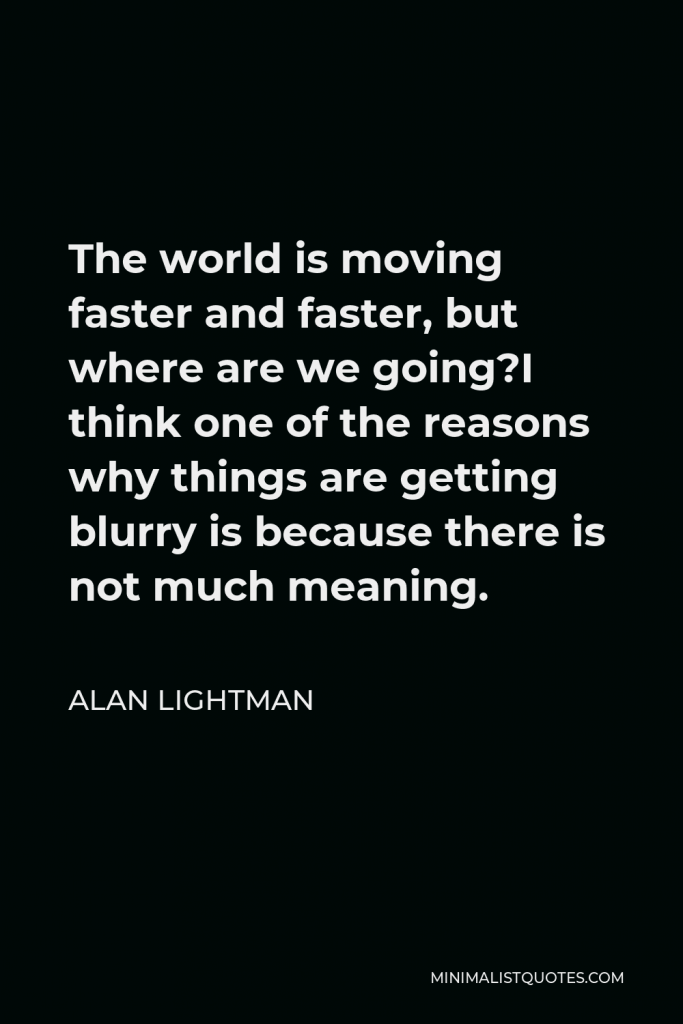

The world is moving faster and faster, but where are we going?I think one of the reasons why things are getting blurry is because there is not much meaning.
ALAN LIGHTMAN -





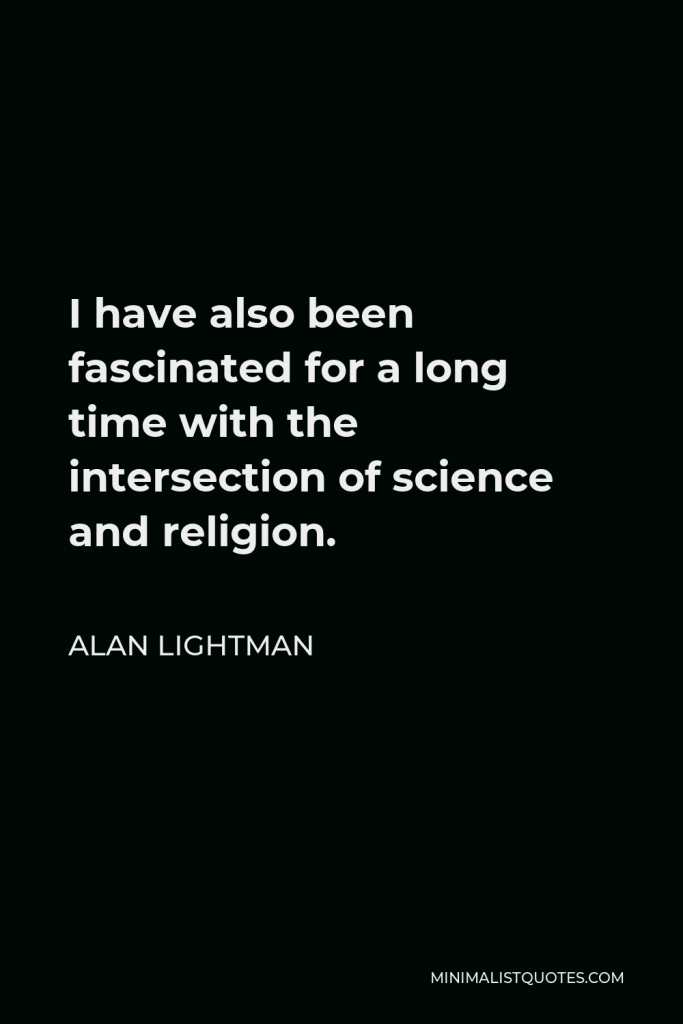

I have also been fascinated for a long time with the intersection of science and religion.
ALAN LIGHTMAN -





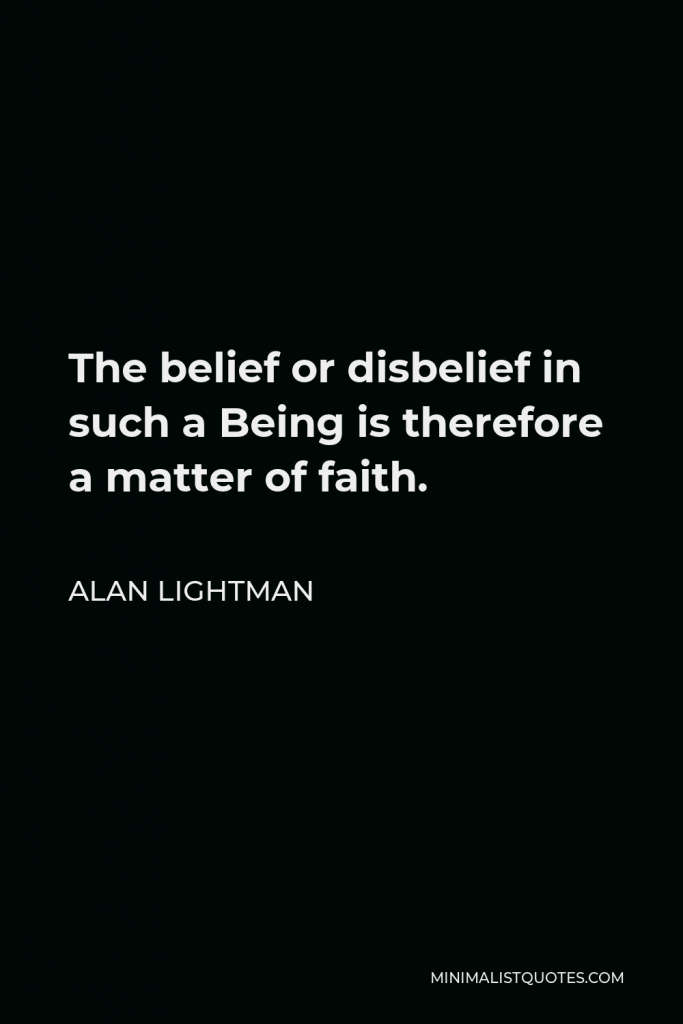

The belief or disbelief in such a Being is therefore a matter of faith.
ALAN LIGHTMAN -





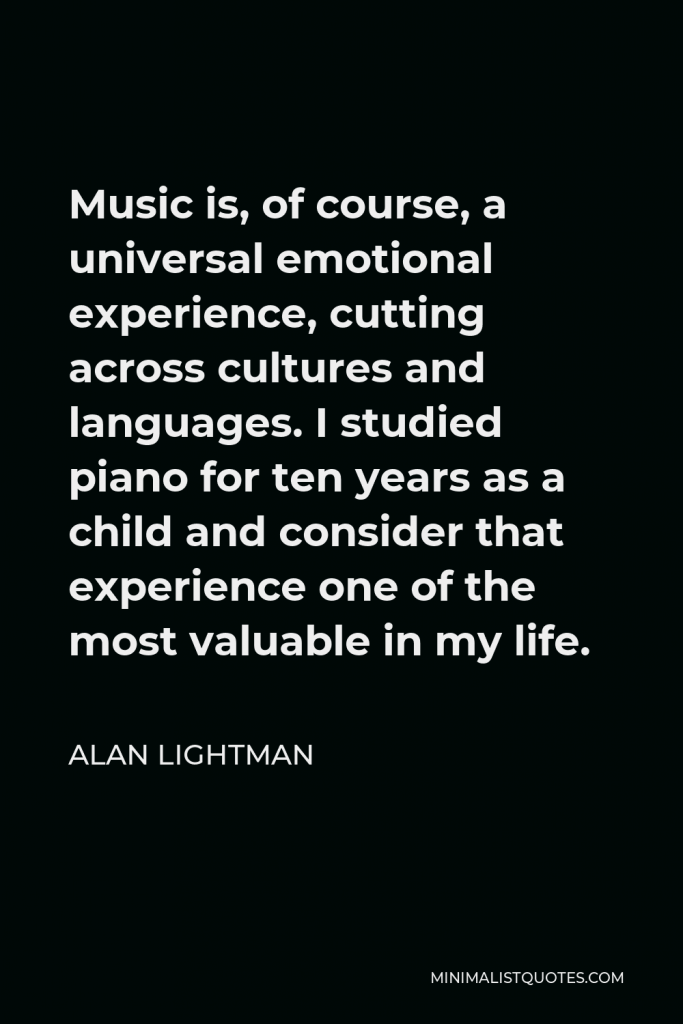

Music is, of course, a universal emotional experience, cutting across cultures and languages. I studied piano for ten years as a child and consider that experience one of the most valuable in my life.
ALAN LIGHTMAN -





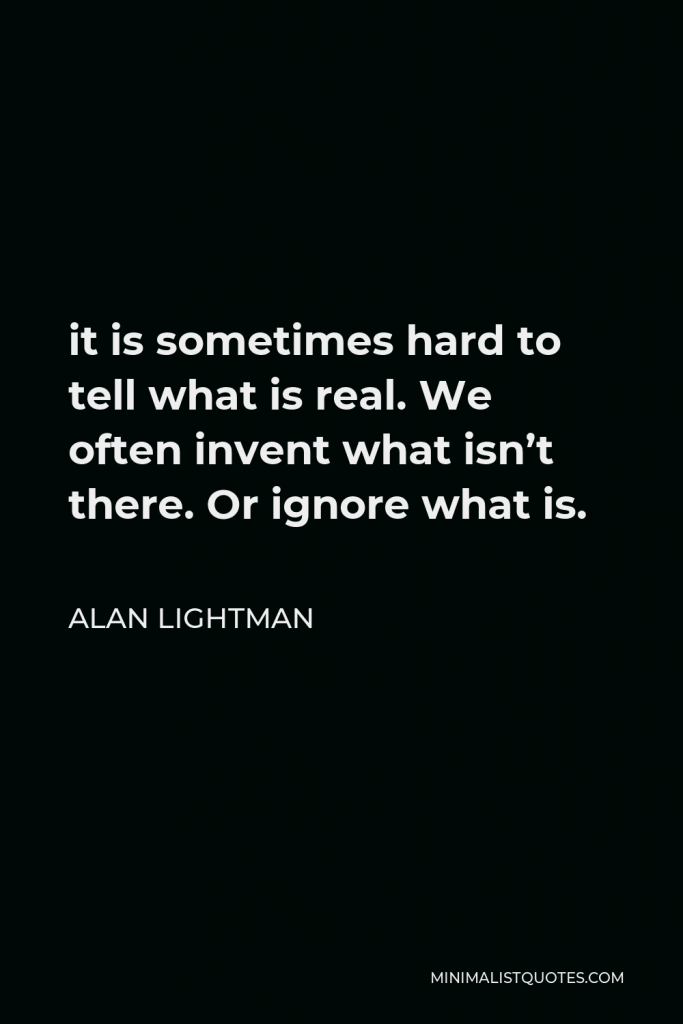

it is sometimes hard to tell what is real. We often invent what isn’t there. Or ignore what is.
ALAN LIGHTMAN -





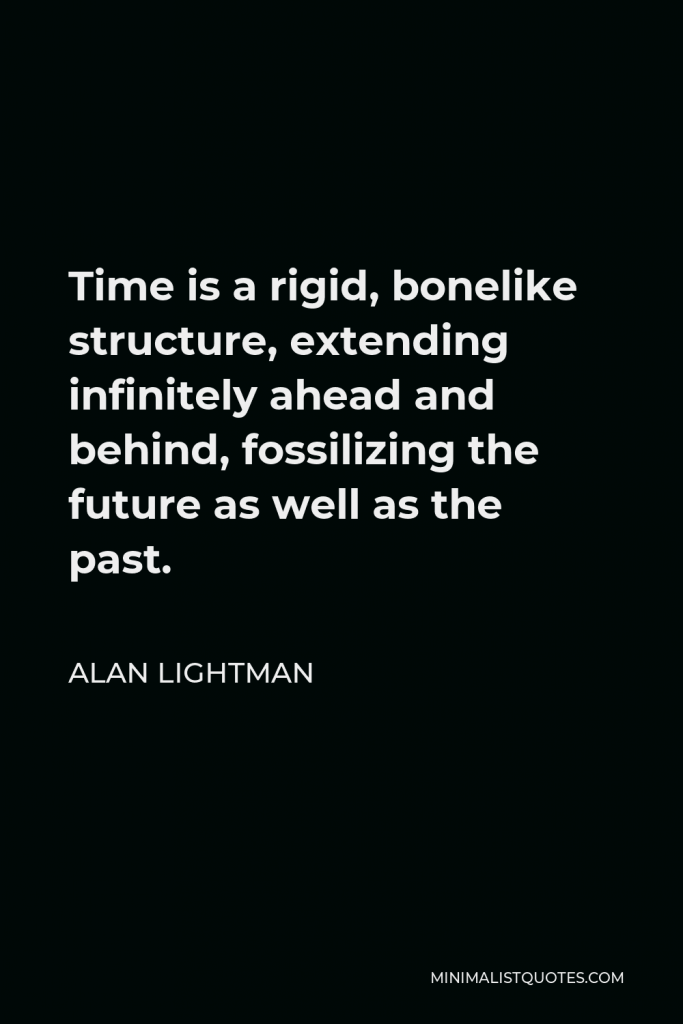

Time is a rigid, bonelike structure, extending infinitely ahead and behind, fossilizing the future as well as the past.
ALAN LIGHTMAN -





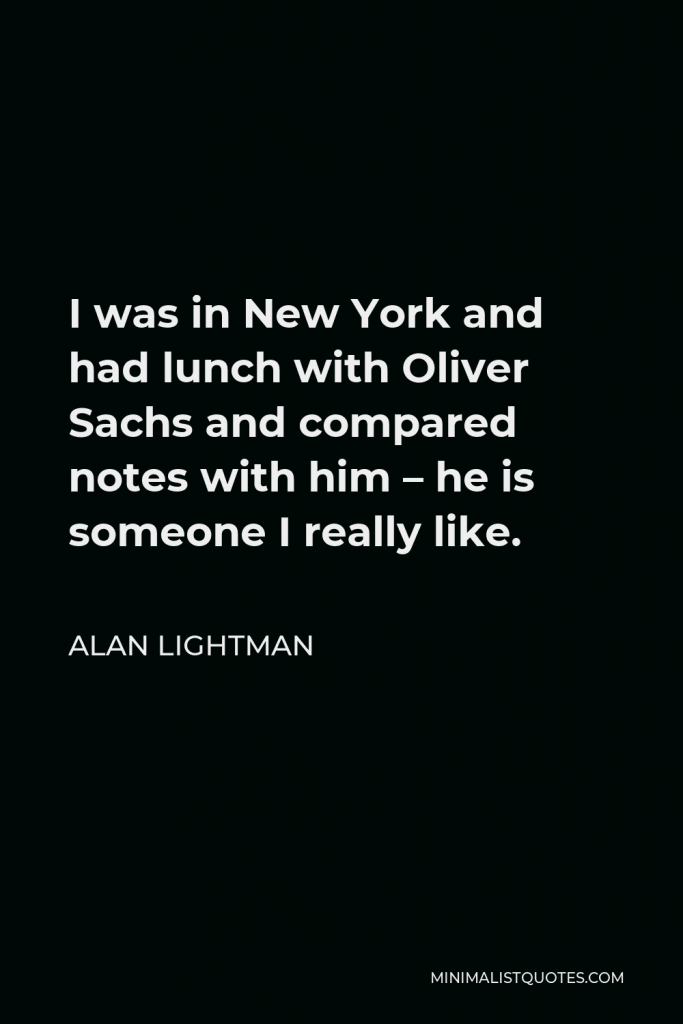

I was in New York and had lunch with Oliver Sachs and compared notes with him – he is someone I really like.
ALAN LIGHTMAN -





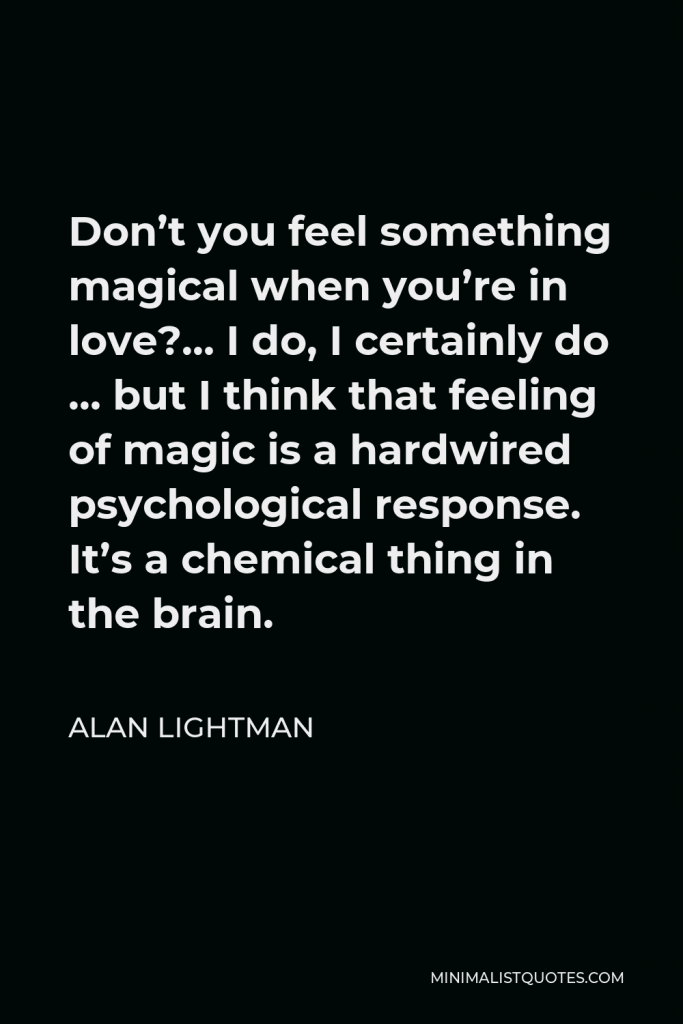

Don’t you feel something magical when you’re in love?… I do, I certainly do … but I think that feeling of magic is a hardwired psychological response. It’s a chemical thing in the brain.
ALAN LIGHTMAN -





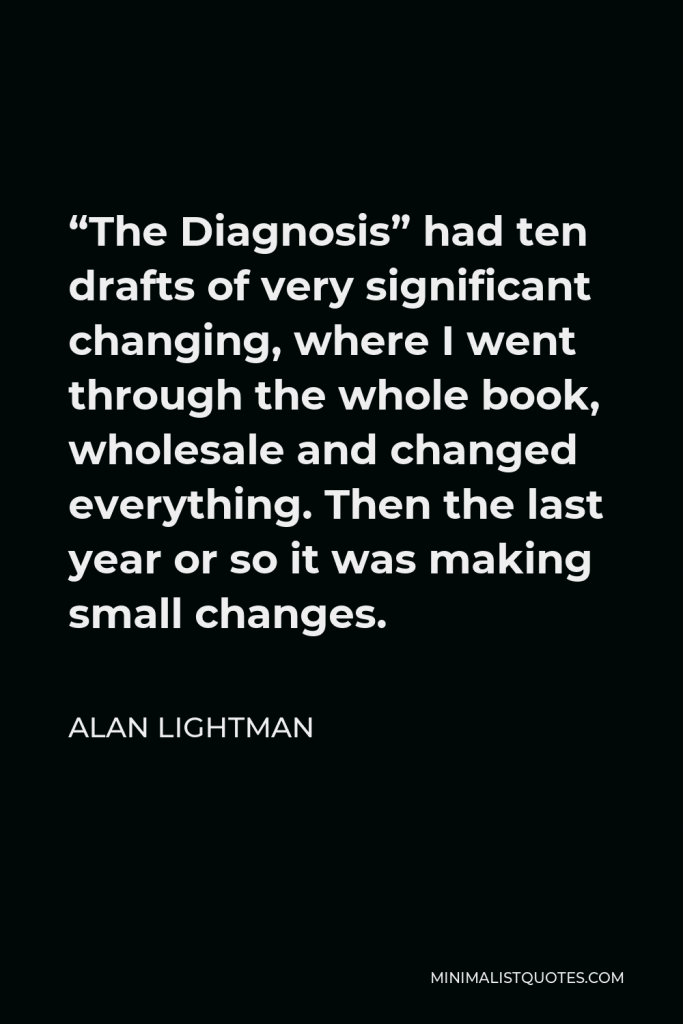

“The Diagnosis” had ten drafts of very significant changing, where I went through the whole book, wholesale and changed everything. Then the last year or so it was making small changes.
ALAN LIGHTMAN -





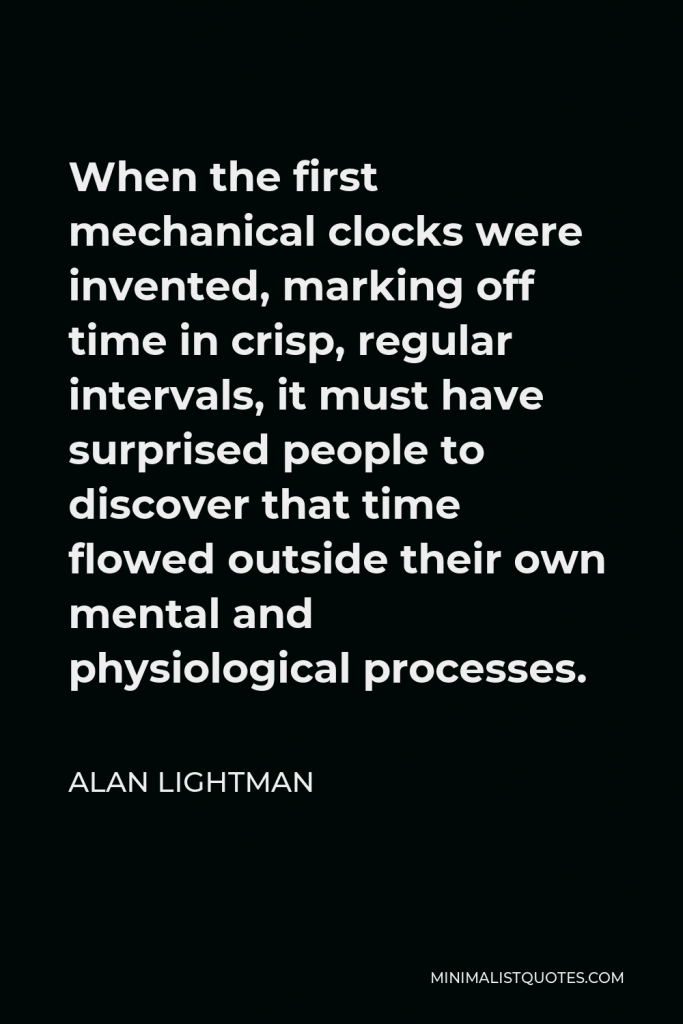

When the first mechanical clocks were invented, marking off time in crisp, regular intervals, it must have surprised people to discover that time flowed outside their own mental and physiological processes.
ALAN LIGHTMAN -





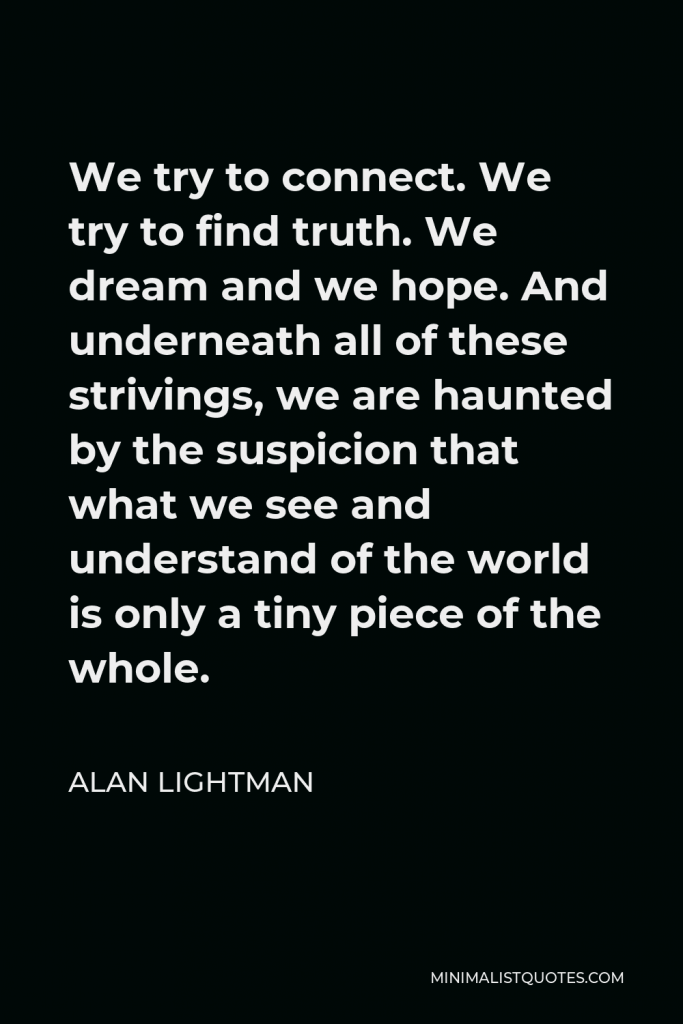

We try to connect. We try to find truth. We dream and we hope. And underneath all of these strivings, we are haunted by the suspicion that what we see and understand of the world is only a tiny piece of the whole.
ALAN LIGHTMAN
